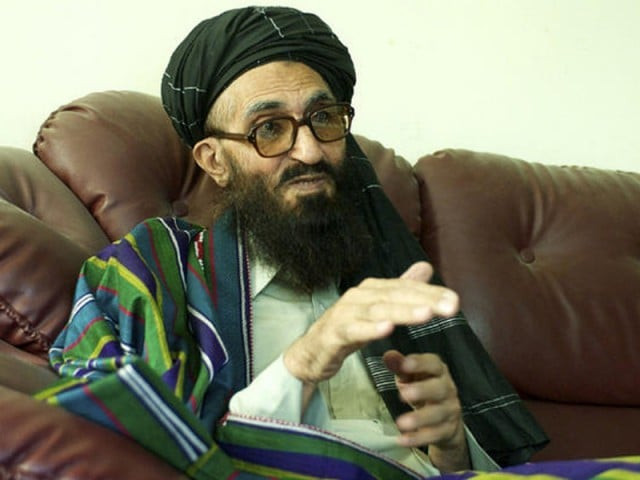Courting the Taliban: Rahmani was upbeat on Afghan settlement
The slain peacemaker claimed that some Muslim states were financing the Taliban insurgency in Afghanistan.

Courting the Taliban: Rahmani was upbeat on Afghan settlement
“We, in our individual capacity and collectively, have opened up new channels of communication with some senior Taliban leaders,” Rahmani had told The Express Tribune in a telephone interview just over a week ago.
“I expect a positive outcome of these new contacts,” the soft-spoken Rahmani said while refusing to divulge details. Between 1996 and 2001 Rahmani served as the Taliban’s deputy higher education minister but defected to Hamid Karzai after the Taliban regime was toppled by US-led forces in 2001.
Last month the Taliban called off peace negotiations with US officials in the Arabian Gulf state of Qatar after accusing the United States of not “fulfilling its promises”.
For the better part of the negotiations process, the Taliban had denied contacts with the Afghan high peace council, saying they would not talk to the ‘powerless’ negotiators of the ‘puppet president’.
“We will have to win over the Taliban, they’re sons of the soil, we cannot simply ignore them,” said Rabbani, who had strong contacts with the Taliban despite his defection. “We have had enough bloodshed – war is not a solution to our problems,” he said.
The Express Tribune had spoken to Rahmani several times for his views on the Afghan peace process. Rahmani believed that all of Afghanistan’s neighbours, including Pakistan, must be taken on board in finding a solution to the Afghan problem. “Undeniably, Pakistan can play an important role in restoring peace in Afghanistan,” he had said.
The slain peacemaker claimed that some Muslim states, especially wealthy sheikhs from Arabian countries, were financing the Taliban insurgency in Afghanistan. “Apart from affluent Arab sheikhs, narco-dollars, extortion from Nato contractors and kidnapping for ransom are other sources of funding for the Taliban,” he said. He believed that unlike the ‘jihad’ against Soviet Red Army, the Taliban insurgency was spread over the entire country. “In south, in east and even in north, they’re fighting on several fronts simultaneously. And for this they need more money and men,” he said, hinting that the Taliban have an unending source of funding and could fight a long war.
Rahmani had also sought to quash the impression that the Taliban insurgency was driven by the country’s Pashtun population only. “Though the Taliban are overwhelmingly Pashtun, they also have fighters from other ethnic groups, like Uzbeks, Tajiks and even Hazaras,” he said.
Analysts believe that since Rahmani had a soft corner for the Taliban, it’s unlikely that the ultraorthodox militia could have killed the septuagenarian peace interlocutor.
Published in The Express Tribune, May 14th, 2012.



















COMMENTS
Comments are moderated and generally will be posted if they are on-topic and not abusive.
For more information, please see our Comments FAQ